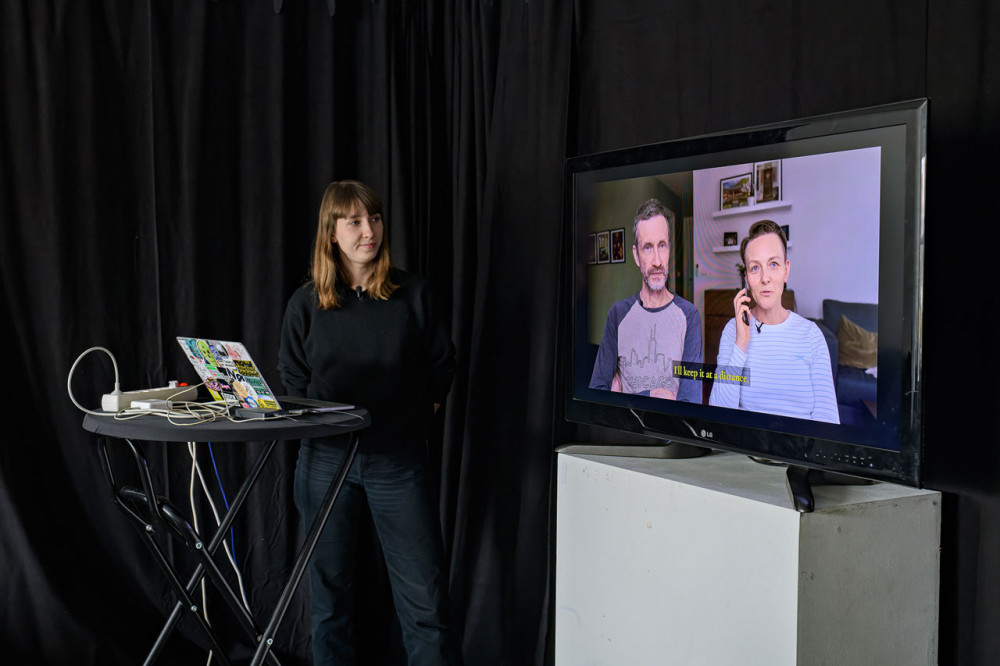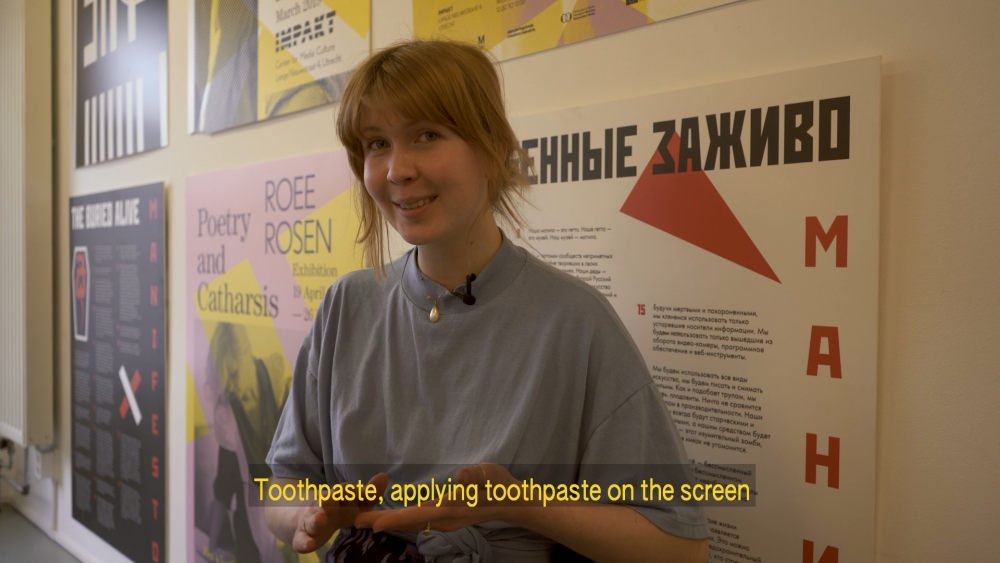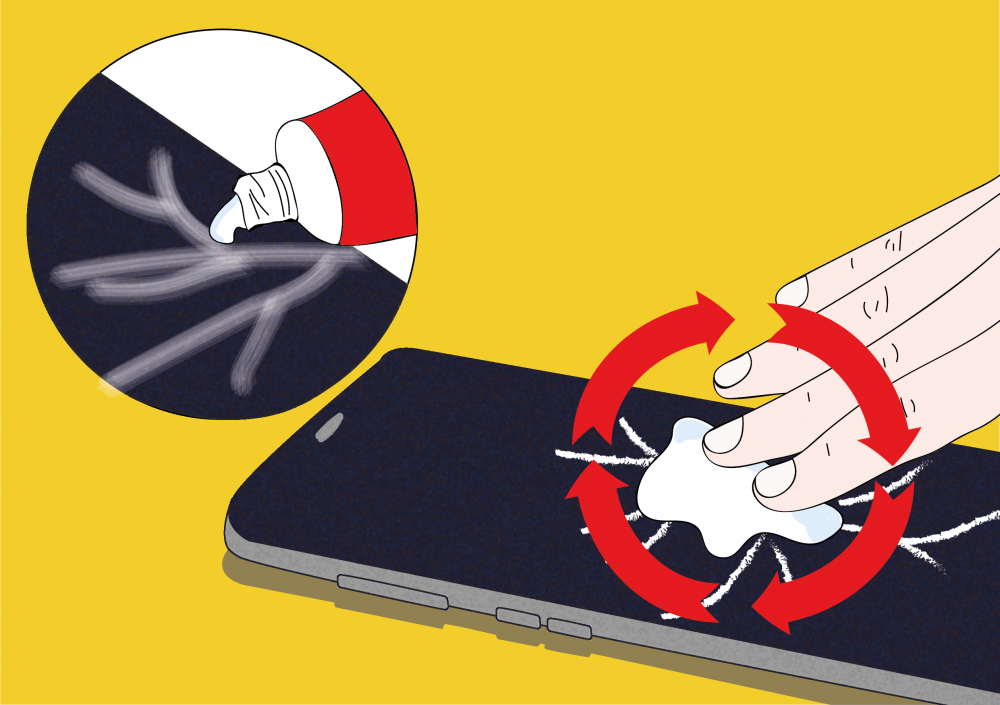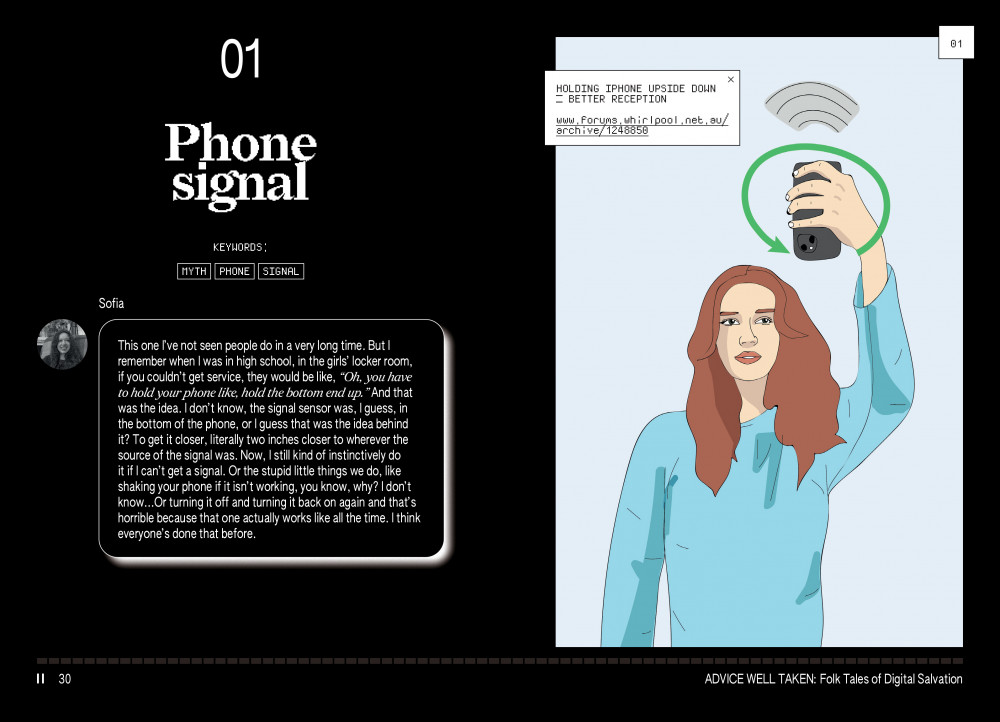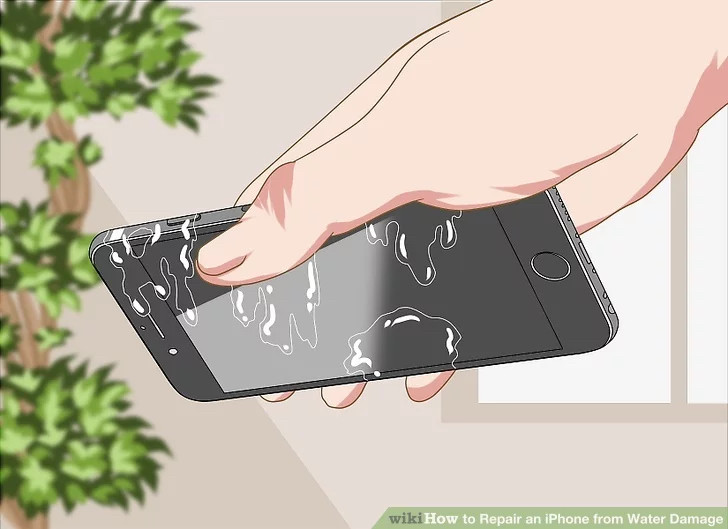Drawing on online as well as community resources, ADVICE WELL TAKEN: Folk tales of digital salvation intends to create an ethnography, documenting the folk strategies around the uses of technology, with a specific focus on saving damaged or dying devices, and the sharing of mythologies to explain the obfuscated workings of algorithms used in social media applications. The project will take the shape of a book as well as a video piece. While the intended publication will aim to document socially adapted ‘strategies’ — ways individuals ‘protect themselves’ from algorithms, as well as how to protect devices from whatever disasters may occur to them or ultimately how to repair a broken device. The video will document the interviews performed in gathering information for the publication itself, as well as containing found footage from the internet — where most of ‘techlore’ (folklore about technology) is shared.
########################
In Dialogue: Artist Talk with IMPAKT - Center for Media Culture, Utrecht
IMPAKT: During your EMAP residency you are working on a new work: ADVICE WELL TAKEN: Folk tales of digital salvation. Can you tell us a bit more about the project and what inspired you?
Dasha Ilina: ADVICE WELL TAKEN is in a sense an ethnographic study of the common sense ways people rationalise the obfuscated workings of modern technology though narrative and storytelling. The idea first came to me while giving a lecture on digital culture as part of a course discussing the history of the internet. A lot of the research required for this lecture centred on the promises of the early internet, as well as the initial online communities which believed that the internet would be a liberating and emancipatory tool allowing for a form of self-governance, out of the grasp of established political institutions and legislative bodies. At the time, the parallels between the themes present in the ‘Whole Earth Catalog,’ a counterculture magazine popular in the 70’s and 80’s which explored self-sufficiency, DIY culture and ecology, and the properties ascribed to the early internet resulted in the formation of a notable community. This community then created a space for individuals to share and take part in each other's ‘practical’ folk knowledge. Following reading about this community and their values, I couldn’t help but ask myself what a similar practice of an open exchange of knowledge would look like if it concerned itself with the contemporary devices that we have come to use on a daily basis?
I then came to the realisation that a lot of the advices we share, and in fact follow when our devices break down or behave unpredictably, are not dissimilar to ancient folklore. Just as humans used to create narratives and mythologies to make sense of natural phenomena beyond our grasp, we mythologize our technological devices. In order to regain a sense of control, or a sense that we understand the technology that is increasingly infiltrating all aspects of our lives, we tell stories, spread urban legends and create myths. This project is a documentation of these stories, a collection of the ‘techlore’ often taken for granted or simply disregarded, presented in the form of a video and a publication of interviews conducted with people from a wide range of backgrounds to explore the pervasiveness and attempts to make sense of these intentionally opaque yet everyday objects.
IMPAKT: ADVICE WELL TAKEN aims to document strategies and 'techlore' that individuals use in order to protect themselves from algorithms and repair broken devices. On websites, bulletin boards and newsgroups people exchange all kinds of digital tricks, short-cuts, hacks and tech superstitions. Why do you think it is so important to document this? What does it tell about contemporary relationship to technology and about our need to feel in control over our devices?
Dasha Ilina: I think it’s important to document because it does say something about humans. People are meaning makers by nature, and telling stories has always been a key part of how people make meaning. I think you can tell a lot about the cultural and social customs of a particular time through the subjects we narrate. I mentioned it in the previous question, but I think one of the main purposes of this kind of ‘techlore’ is to regain the sense that we have agency over our devices, and can ultimately understand them. These stories often tend to be the simplest or the most obvious explanation for increasingly complex and obfuscated processes. One example that I always bring up is the popular theory that smartphones listen to and record conversations in order to send us targeted ads. Of course, I'm not an expert on data collection or cybersecurity, so I can't say for sure whether that's true or not, but neither can the people who believe this is the case. But I do think that this urban legend is likely a very simplistic explanation of an extremely complex process of data collection and profiling that relies on all sorts of information that social networks collect about us — our location, our age, who we message, the links we click, our proximity to other users’ phones — to name a few. So, I think that these stories illustrate a human will to find common sense understandings of these really opaque processes. It's funny, because someone I spoke to about my project pointed out that it’s unlikely there’s a single person in the world who actually knows exactly how these systems work. Each individual engineer, designer or researcher probably only knows what they have focused on, which could be a very small part of how a whole application works. I hope this isn’t actually true and that there are at least a handful of people out there who can actually tell you how our devices or applications work, but the competitive nature of these big tech companies makes this somewhat unlikely.
IMPAKT: What are some of the most surprising or unexpected strategies have you come across during your research?
Dasha Ilina: I was already familiar with a lot of different strategies, which is why I thought it would be interesting to do this project, so I already had an internal collection of stories I’d heard from my friends, from my parents, or from overhearing strangers. Because of this, the most surprising strategies I’d heard during the interviews were often times quite trivial — I had heard so many different conspiracy theories that my most extreme reactions were to rather simple strategies such as rubbing toothpaste on a cracked smartphone screen to smooth the surface, or putting your phone in a ziplock bag to take it with you in the shower and listen to music. Though that’s not entirely true, because during an interview I also met someone who thought social media apps could read our minds, because sometimes we get ads for things we're thinking about but haven't talked to anyone about yet.
IMPAKT: What will you do during your 2-month residency at IMPAKT and when will we be able to see the first results?
Dasha Ilina: During my residency, I’ll be conducting interviews, filming, and editing, as well as producing the final video and publication. In order to work on the publication I will be collaborating with a Rotterdam based artist Supisara Burapachaisri, so I will also spend a large part of my time working with her. The project is set to be completed by the end of August and one thing is for sure — you’ll be able to see it at the upcoming IMPAKT Festival in November!
